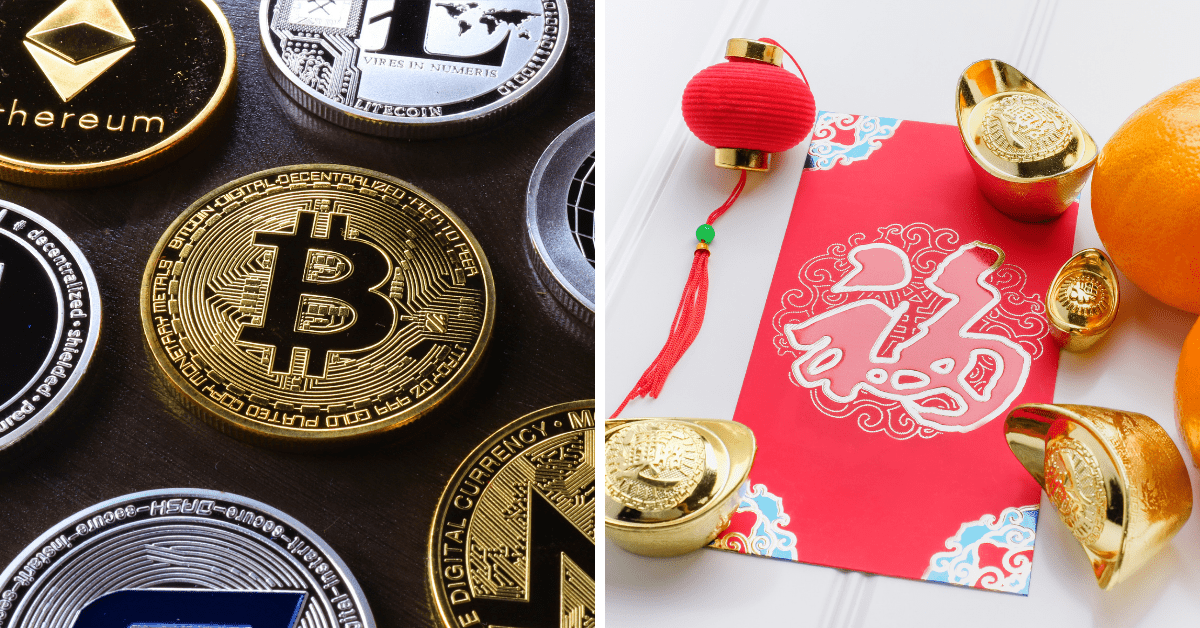As the Lunar New Year of the Tiger approaches, crypto exchanges and wallet operators are gearing up to offer users the option to send crypto via digital red packets, or hongbao in Mandarin.
Giving and receiving lucky money — traditionally, crisp new bills tucked into fancy red envelopes — during the first two weeks of the lunar new year is part of many Asian cultures. Although some crypto platforms have been testing the waters, industry experts say the idea of giving red packets in cryptocurrency has not really taken off yet for consumers.
“In Asia, we are still probably quite a few years out from mainstream crypto usage, so at this stage, fiat-based e-hongbao takes the clear lead,” said Daniel So, a manager for Hong Kong merchants payments at Worldpay from FIS, in an emailed interview with Forkast. He added that there are still not many crypto wallets on the market with e-hongbao functionality. “As digital currencies become more mainstream, it could spur greater interest in use cases such as digital crypto red packets.”
Binance is among those trying to make crypto hongbaos more mainstream. The world’s largest crypto exchange by trading volume is one of the most active players when it comes to facilitating crypto gifting. In July, Binance launched a gift card program, and the company is now actively marketing it for the upcoming Lunar New Year, which starts on Feb. 1 this year.
In a blog post, Binance encourages parents to safeguard the crypto their children receive during the new year by setting up a savings account with the exchange, so the funds can “accumulate as they grow older.”
While Binance doesn’t yet know how popular its crypto red packets will be, its crypto gift cards are gaining traction. A Binance spokesperson told Forkast that in December, the exchange saw a 740% increase in the number of crypto gift cards sent to friends and family, compared to the monthly average from July to November. Binance said that 70% of the gift card redeemers during its December holiday campaign were new users.
Other crypto companies have also been trying to capitalize on the lunar new year season.
Crypto.com, a fast-growing exchange based in Singapore, last year introduced a red-envelope feature on its wallet app that allowed users to send cryptocurrencies to their loved ones with personalized messages. This year it is giving away red packets to its users.
Blocto, a Taiwan-based crypto wallet service provider, has a gifting dApp called Cardma. The application does not specifically target the lunar new year but allows users to send a non-fungible token, in the form of an e-card with crypto attached to it, any time of the year.
Cobo, a Singapore-based crypto custody and asset management platform, launched a red envelope gifting feature in 2018. From 2018 to 2020, Cobo gave away 785 red packets to users, the company said, adding that this year it will randomly gift red packets to loyal users.
“As the crypto boom continues to heat up, it adds more fun and strengthens faith for users to receive cryptocurrency red envelopes,” Discus Fish, CEO and co-founder of Cobo, told Forkast, adding that the company will reward its employees with “secret crypto red packets” to celebrate the new year.
Philipp Seifert, the marketing lead of self-custodial wallet imToken, told Forkast: “We have seen red packet marketing campaigns every year, but decentralized crypto red packets aren’t really a big thing outside those promotion campaigns.”
Seifert said that in 2019, imToken had tried out launching a red packet feature with LinkDrop — a team of Ethereum OGs — but its users said at the time that transaction fees were too high. Users also didn’t want to make their balance public when sending money from their trading wallet addresses directly to a friend.
“This would be just like showing your bank balance to your family each time when giving out cash red packets,” Seifert said.
However, Seifert added that there are projects working on solving these issues. He said that Loopring, an Ethereum zkRollup protocol, has developed a red packet feature on layer 2 to reduce transaction costs.
NEAR has also built a red packet function that allows users to send red packets as actual links without having to put in the receivers’ addresses, Seifert said.
“Personally I’m positive that layer 2s will make this very cheap and — for a little bit higher fee — private,” Seifert added.
Ningwei Qin contributed to this report.

